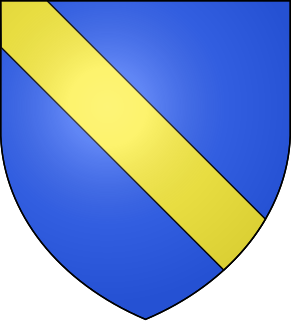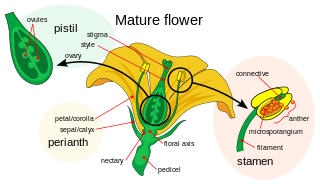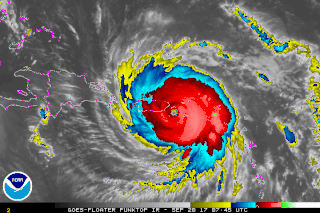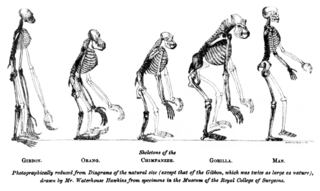
In computing, a hyperlink, or simply a link, is a reference to data that the reader can directly follow either by clicking or tapping. A hyperlink points to a whole document or to a specific element within a document. Hypertext is text with hyperlinks. The text that is linked from is called anchor text. A software system that is used for viewing and creating hypertext is a hypertext system, and to create a hyperlink is to hyperlink. A user following hyperlinks is said to navigate or browse the hypertext.
The term web service is either

A glossary, also known as a vocabulary or clavis, is an alphabetical list of terms in a particular domain of knowledge with the definitions for those terms. Traditionally, a glossary appears at the end of a book and includes terms within that book that are either newly introduced, uncommon, or specialized. While glossaries are most commonly associated with non-fiction books, in some cases, fiction novels may come with a glossary for unfamiliar terms.

Patina is a thin layer that variously forms on the surface of copper, bronze and similar metals, or certain stones, and wooden furniture, or any similar acquired change of a surface through age and exposure.
In the scientific name of organisms, basionym or basyonym means the original name on which a new name is based; the author citation of the new name should include the authors of the basionym in parentheses. The term original combination or protonym is used in the same way in zoology. Bacteriology uses a similar term, basonym, spelled without an i.

In heraldry, a bend is a band or strap running from the upper dexter corner of the shield to the lower sinister. Authorities differ as to how much of the field it should cover, ranging from one-fifth up to one-third. The supposed rule that a bend should occupy a maximum of one-third of the field appears to exclude the possibility of three bends being shown together, but contrary examples exist. Outside heraldry, the term "bend sinister" is sometimes used to imply illegitimacy, though it is almost never true that a bend sinister has this significance, and a "bar sinister" cannot, by its nature, exist.
Representational State Transfer (REST) is a software architectural style that defines a set of constraints to be used for creating Web services. Web services that conform to the REST architectural style, termed RESTful Web services (RWS), provide interoperability between computer systems on the Internet. RESTful Web services allow the requesting systems to access and manipulate textual representations of Web resources by using a uniform and predefined set of stateless operations. Other kinds of Web services, such as SOAP Web services, expose their own arbitrary sets of operations.

Vīrya is a Buddhist term commonly translated as "energy", "diligence", "enthusiasm", or "effort". It can be defined as an attitude of gladly engaging in wholesome activities, and it functions to cause one to accomplish wholesome or virtuous actions.
Trailokya survase has been translated as "three worlds," "three spheres," "three planes of existence," "three realms" and "three regions." These three worlds are identified in Hinduism and appear in early Buddhist texts.

The perianth is the non-reproductive part of the flower, and structure that forms an envelope surrounding the sexual organs, consisting of the calyx (sepals) and the corolla (petals). The term perianth is derived from the Greek περί, peri, meaning around, and άνθος, anthos, meaning flower, while perigonium is derived from gonos, meaning seed, i.e. sexual organs. In the mosses and liverworts (Marchantiophyta), the perianth is the sterile tubelike tissue that surrounds the female reproductive structure.
The military designation of days and hours within the North Atlantic Treaty Organisation (NATO), is specified in AAP-6, NATO Glossary of Terms and Definitions, and marked (NATO) in what follows. Those entries marked (US) are specific to the U.S., and defined only in Joint Publication JP 1-02, Department of Defense Dictionary of Military and Associated Terms.
An executive session is a portion of the United States Senate's daily session in which it considers nominations and treaties, or other items introduced by the President of the United States. These items are termed executive business; therefore, the session is an executive session. It can either be closed door or open door. Historically, as a courtesy to the President, such sessions were always held behind closed doors, but this custom has been abandoned in modern times. The term "executive session" is still employed to refer to closed-door committee meetings, whether or not they are considering executive business. In any case, those present in an executive session are sworn to secrecy.
Eastern Yugur is the Mongolic language spoken within the Yugur nationality. The other language spoken within the same community is Western Yughur, which is a Turkic language. The terms may also indicate the speakers of these languages. Traditionally, both languages are indicated by the term Yellow Uygur, from the autonym of the Yugur. Eastern Yugur speakers are said to have passive bilingualism with Southern Mongolian, the standard spoken in China.

Landfall is the event of a storm or waterspout moving over land after being over water.

A pseudanthium, also called a flower head or composite flower, is a special type of inflorescence, in which anything from a small cluster to hundreds or sometimes thousands of flowers are grouped together to form a single flower-like structure. Pseudanthia take various forms. The individual flowers of a pseudanthium commonly are called florets. The real flowers are generally small and often greatly reduced, but the pseudanthium itself can sometimes be quite large.
Terminology extraction is a subtask of information extraction. The goal of terminology extraction is to automatically extract relevant terms from a given corpus.
Negative cost is the net expense to produce and shoot a film, excluding such expenditures as distribution and promotion.

Rain and snow mixed is precipitation composed of rain and partially melted snow. Unlike ice pellets, which are hard, and freezing rain, which is fluid until striking an object, this precipitation is soft and translucent, but it contains some traces of ice crystals, from partially fused snowflakes. In any one location, it usually occurs briefly as a transition phase from rain to snow or vice versa. Its METAR code is RASN.

Ricardian economics are the economic theories of David Ricardo, an English political economist born in 1772 who made a fortune as a stockbroker and loan broker. At the age of 27, he read An Inquiry into the Nature and Causes of Wealth of Nations by Adam Smith and was energized by the theories of economics.
There are a number of terms that are used in connection with caves, caving and speleology. The following is an incomplete list.











